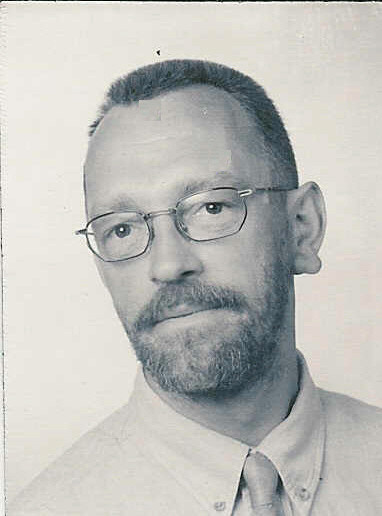Home > News > Neothomism and the intellectual emancipation of Dutch Catholicism
Neothomism and the intellectual emancipation of Dutch Catholicism
Lodewijk Winkeler has been a member of the Thomas Instituut te Utrecht from the very beginning. As member of the editorial board of the Jaarboek and as secretary of the Thomas Foundation he has played a crucial role within the institute during the last two decades. Because of the increase of other responsibilities he recently had to decide to leave these tasks to others, but nevertheless he will remain a member of the institute.
Who are you and where do you work?I am Lodewijk Winkeler, 52 years old, working at the Katholiek Documentatie Centrum (Catholic Documentation Center) of the Catholic University of Nijmegen, which keeps collections (archives, library, images and audiovisuals) about Dutch Catholicism since 1800.
How were you introduced to the thought of Aquinas?
I have been a student of professor Ferdinand De Grijs - founder of the Thomas Institute - in the seventies of the 20th century.
Has he been your mentor in your study of Aquinas?
He certainly was. Making an index on the writings of Gerardus Kreling O.P. - edited by De Grijs and others - I learned a lot about so called 'Open Neothomism'. Some of Kreling's articles were interesting enough to study again in later years.
I also learned a lot about aspects of Thomas' thoughts from Dries van Melsen and Theo Beemer, both professors at Nijmegen.
What is the most important thing you learned from Aquinas?
"Cognita sunt in cognoscente ad modum cognoscentis", cited by M.-D. Chenu in his famous Une cole de Théologie: Le Saulchoir.
Do you do any research on Aquinas nowadays?
No, I don't. My interest in Thomas Aquinas is kept alive by my work in the editorial board of of the Yearbook and as a secretary of the Thomas Foundation, positions I resigned in March 2004.
But I am interested in the influence of Thomism and Neothomism on the thought of Dutch catholic intellectuals of the 19th and 20th century. In my opinion Neothomism has been important for the intellectual emancipation of Dutch Catholicism, and was not just a kind of schoolish seminary theology.
In which way?
Because neothomism tought intellectuals to respect reason (and therefore science and humanities) as part of the creation and so as part of modern society. Fot a lot of catholic intellectuals it created a sound relation between faith and reason.
You have been very much involved in the formation and the development of the Thomas Instituut te Utrecht and the Thomas Foundation during the last twenty years. Perhaps you could share some of your memories with us?
In the beginning the Thomas Institute started as a simple working group of interested scholars and students. (I have written an article about the history and the development from working group to Thomas Institute in the Yearbook of the Thomas Institute in 1995.)
I have got very special memories of the persistence of Ferdinand De Grijs, who went on to believe that we had time enough to spend on research about Thomas. After a meeting with him you always went home inspired and with a lot of good intentions...
How do you see the work of the Thomas Instituut now and its development for the next few years? To what matters should the Thomas Instituut lend priority?
May I leave the answer to this to the participants of the Institute itself? Since the Institute is connected with theological universities, were the education of pastors is an important task, I expect them to be perfectly capable to keep the contact between Thomas and modern thinking.
Can you give us the titles of some of your publications so that readers may get to know more about your work?
Years ago, I wrote some articles about the importance of neothomism for the development of catholic thinking of Dutch intellectuals. Two of them are:
'Deelgenoten aan Gods voorzienigheid', in: Geloven in de wereld. Een vriendenboek voor en over Prof.dr. A.G.M. van Melsen, Nijmegen/Baarn 1986, p. 215-228.
'Neothomisme en emancipatie. Verkenningen rond een hypothese', in: De praktische Thomas. Thomas van Aquino: de consequenties van zijn theologie voor hedendaags gedrag (Theologie en Samenleving 10), Hilversum 1987, p. 102-112.
I also wrote about the history of Dutch seminary for theology and theological studies in Amsterdam, Utrecht and Nijmegen.
Lodewijk, thank your very much for your time and good luck in the future!
Cristina Pumplun
